[Anchor]
The automobiles for which Japan secured tariff cuts are Korea’s top export to the United States—and an area of intense competition between the two countries.
To avoid falling behind Japan, the Korean government is now in emergency mode.
Key economic and trade officials are heading to Washington for a final round of negotiations.
Reporter Park Kyung-jun has the details.
[Report]
Automobiles are Korea’s number one export to the U.S., with 1.54 million units sold last year alone.
Japan, a key competitor, sold 1.38 million units—slightly less.
Since April, the U.S. has imposed a 25% tariff on imported cars, citing excessive foreign inflow.
But under the recent U.S.-Japan agreement, Japan’s automobile tariff will be reduced to 15%.
This means that for a $30,000 car, Japanese vehicles could end up being more than $3,000—or over 4 million won—cheaper than Korean ones in the U.S. market.
[Kim Kyung-yu/Senior Researcher, Korea Institute for Industrial Economics and Trade: "If there’s a 10% price difference for the same car model, can we really compete with Japan in the U.S. with the same product?"]
Given Japan secured reductions in both reciprocal and product-specific tariffs through negotiations, there’s hope Korea may also have some room to maneuver.
However, the U.S. is demanding the removal of non-tariff barriers such as opening the agricultural and livestock markets, easing digital regulations, making large-scale investments comparable to Japan’s, and participating in the Alaska LNG development project.
The scope and intensity of these demands make it difficult for Korea to secure favorable outcomes.
[President Lee Jae Myung/G7 Summit In-flight Briefing/June 16: "It’s important to ensure we’re not placed in a more unfavorable situation compared to other countries."]
There are only nine days left until the negotiation deadline.
Following the National Security Adviser and the Trade Minister, the Minister of Industry flew to the U.S. today (23rd), and the Minister of Economy and Finance is scheduled to depart tomorrow (7.24).
[Kim Jung-kwan/Minister of Trade, Industry and Energy: "(Now that Japan’s deal is finalized, will it affect ours?) We’re closely reviewing that aspect. I’ll do my best during the trip."]
As part of a final push, Korea plans to engage in a high-level 2+2 meeting on finance and trade on July 25. The Ministers of Industry and Foreign Affairs will also hold separate talks with U.S. counterparts.
This is KBS News, Park Kyung-jun.
The automobiles for which Japan secured tariff cuts are Korea’s top export to the United States—and an area of intense competition between the two countries.
To avoid falling behind Japan, the Korean government is now in emergency mode.
Key economic and trade officials are heading to Washington for a final round of negotiations.
Reporter Park Kyung-jun has the details.
[Report]
Automobiles are Korea’s number one export to the U.S., with 1.54 million units sold last year alone.
Japan, a key competitor, sold 1.38 million units—slightly less.
Since April, the U.S. has imposed a 25% tariff on imported cars, citing excessive foreign inflow.
But under the recent U.S.-Japan agreement, Japan’s automobile tariff will be reduced to 15%.
This means that for a $30,000 car, Japanese vehicles could end up being more than $3,000—or over 4 million won—cheaper than Korean ones in the U.S. market.
[Kim Kyung-yu/Senior Researcher, Korea Institute for Industrial Economics and Trade: "If there’s a 10% price difference for the same car model, can we really compete with Japan in the U.S. with the same product?"]
Given Japan secured reductions in both reciprocal and product-specific tariffs through negotiations, there’s hope Korea may also have some room to maneuver.
However, the U.S. is demanding the removal of non-tariff barriers such as opening the agricultural and livestock markets, easing digital regulations, making large-scale investments comparable to Japan’s, and participating in the Alaska LNG development project.
The scope and intensity of these demands make it difficult for Korea to secure favorable outcomes.
[President Lee Jae Myung/G7 Summit In-flight Briefing/June 16: "It’s important to ensure we’re not placed in a more unfavorable situation compared to other countries."]
There are only nine days left until the negotiation deadline.
Following the National Security Adviser and the Trade Minister, the Minister of Industry flew to the U.S. today (23rd), and the Minister of Economy and Finance is scheduled to depart tomorrow (7.24).
[Kim Jung-kwan/Minister of Trade, Industry and Energy: "(Now that Japan’s deal is finalized, will it affect ours?) We’re closely reviewing that aspect. I’ll do my best during the trip."]
As part of a final push, Korea plans to engage in a high-level 2+2 meeting on finance and trade on July 25. The Ministers of Industry and Foreign Affairs will also hold separate talks with U.S. counterparts.
This is KBS News, Park Kyung-jun.
■ 제보하기
▷ 카카오톡 : 'KBS제보' 검색, 채널 추가
▷ 전화 : 02-781-1234, 4444
▷ 이메일 : kbs1234@kbs.co.kr
▷ 유튜브, 네이버, 카카오에서도 KBS뉴스를 구독해주세요!
- Korea races to match Japan's deal
-
- 입력 2025-07-23 23:45:51
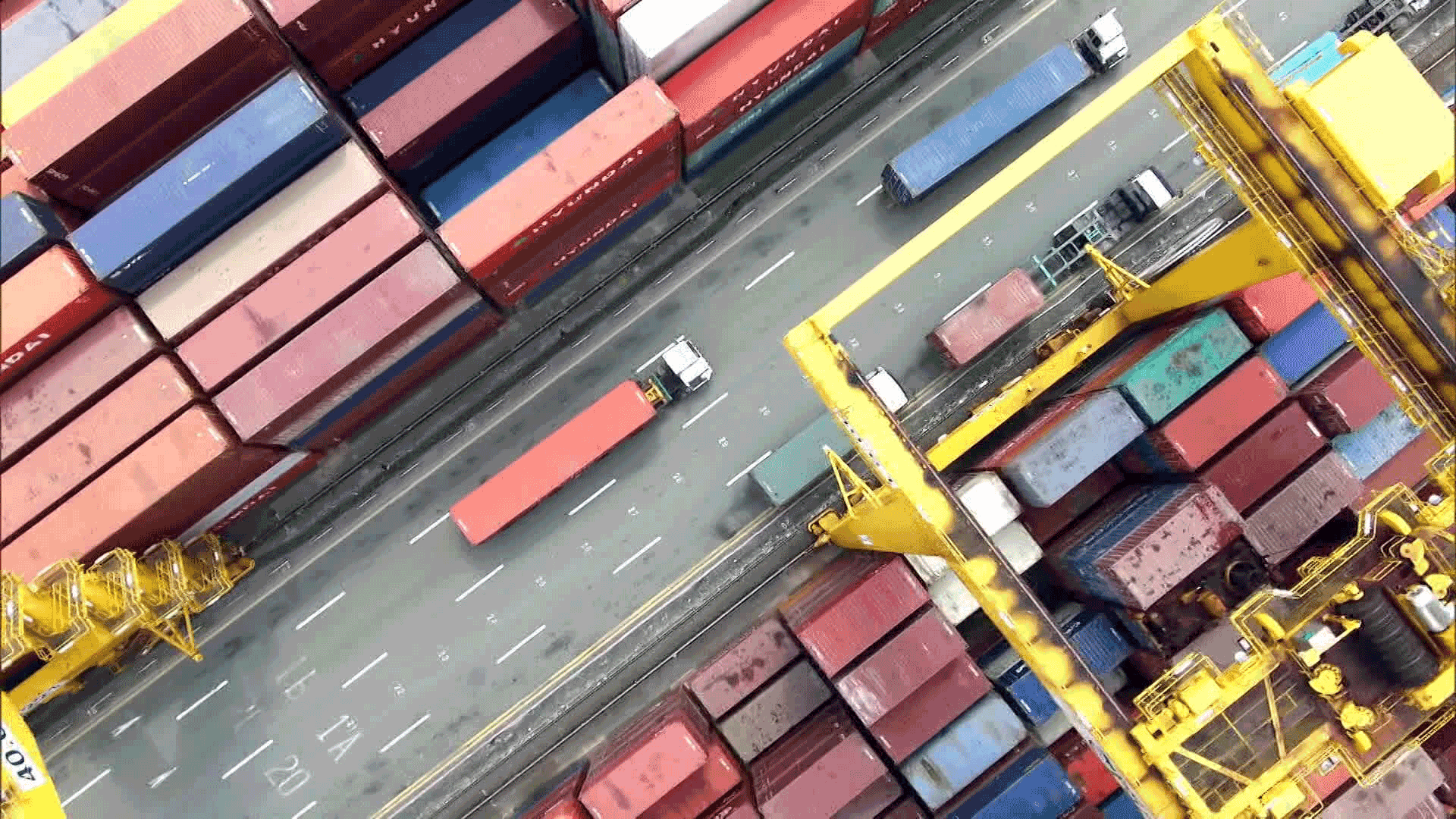
[Anchor]
The automobiles for which Japan secured tariff cuts are Korea’s top export to the United States—and an area of intense competition between the two countries.
To avoid falling behind Japan, the Korean government is now in emergency mode.
Key economic and trade officials are heading to Washington for a final round of negotiations.
Reporter Park Kyung-jun has the details.
[Report]
Automobiles are Korea’s number one export to the U.S., with 1.54 million units sold last year alone.
Japan, a key competitor, sold 1.38 million units—slightly less.
Since April, the U.S. has imposed a 25% tariff on imported cars, citing excessive foreign inflow.
But under the recent U.S.-Japan agreement, Japan’s automobile tariff will be reduced to 15%.
This means that for a $30,000 car, Japanese vehicles could end up being more than $3,000—or over 4 million won—cheaper than Korean ones in the U.S. market.
[Kim Kyung-yu/Senior Researcher, Korea Institute for Industrial Economics and Trade: "If there’s a 10% price difference for the same car model, can we really compete with Japan in the U.S. with the same product?"]
Given Japan secured reductions in both reciprocal and product-specific tariffs through negotiations, there’s hope Korea may also have some room to maneuver.
However, the U.S. is demanding the removal of non-tariff barriers such as opening the agricultural and livestock markets, easing digital regulations, making large-scale investments comparable to Japan’s, and participating in the Alaska LNG development project.
The scope and intensity of these demands make it difficult for Korea to secure favorable outcomes.
[President Lee Jae Myung/G7 Summit In-flight Briefing/June 16: "It’s important to ensure we’re not placed in a more unfavorable situation compared to other countries."]
There are only nine days left until the negotiation deadline.
Following the National Security Adviser and the Trade Minister, the Minister of Industry flew to the U.S. today (23rd), and the Minister of Economy and Finance is scheduled to depart tomorrow (7.24).
[Kim Jung-kwan/Minister of Trade, Industry and Energy: "(Now that Japan’s deal is finalized, will it affect ours?) We’re closely reviewing that aspect. I’ll do my best during the trip."]
As part of a final push, Korea plans to engage in a high-level 2+2 meeting on finance and trade on July 25. The Ministers of Industry and Foreign Affairs will also hold separate talks with U.S. counterparts.
This is KBS News, Park Kyung-jun.
The automobiles for which Japan secured tariff cuts are Korea’s top export to the United States—and an area of intense competition between the two countries.
To avoid falling behind Japan, the Korean government is now in emergency mode.
Key economic and trade officials are heading to Washington for a final round of negotiations.
Reporter Park Kyung-jun has the details.
[Report]
Automobiles are Korea’s number one export to the U.S., with 1.54 million units sold last year alone.
Japan, a key competitor, sold 1.38 million units—slightly less.
Since April, the U.S. has imposed a 25% tariff on imported cars, citing excessive foreign inflow.
But under the recent U.S.-Japan agreement, Japan’s automobile tariff will be reduced to 15%.
This means that for a $30,000 car, Japanese vehicles could end up being more than $3,000—or over 4 million won—cheaper than Korean ones in the U.S. market.
[Kim Kyung-yu/Senior Researcher, Korea Institute for Industrial Economics and Trade: "If there’s a 10% price difference for the same car model, can we really compete with Japan in the U.S. with the same product?"]
Given Japan secured reductions in both reciprocal and product-specific tariffs through negotiations, there’s hope Korea may also have some room to maneuver.
However, the U.S. is demanding the removal of non-tariff barriers such as opening the agricultural and livestock markets, easing digital regulations, making large-scale investments comparable to Japan’s, and participating in the Alaska LNG development project.
The scope and intensity of these demands make it difficult for Korea to secure favorable outcomes.
[President Lee Jae Myung/G7 Summit In-flight Briefing/June 16: "It’s important to ensure we’re not placed in a more unfavorable situation compared to other countries."]
There are only nine days left until the negotiation deadline.
Following the National Security Adviser and the Trade Minister, the Minister of Industry flew to the U.S. today (23rd), and the Minister of Economy and Finance is scheduled to depart tomorrow (7.24).
[Kim Jung-kwan/Minister of Trade, Industry and Energy: "(Now that Japan’s deal is finalized, will it affect ours?) We’re closely reviewing that aspect. I’ll do my best during the trip."]
As part of a final push, Korea plans to engage in a high-level 2+2 meeting on finance and trade on July 25. The Ministers of Industry and Foreign Affairs will also hold separate talks with U.S. counterparts.
This is KBS News, Park Kyung-jun.
-
-

박경준 기자 kjpark@kbs.co.kr
박경준 기자의 기사 모음
-
이 기사가 좋으셨다면
-
좋아요
0
-
응원해요
0
-
후속 원해요
0










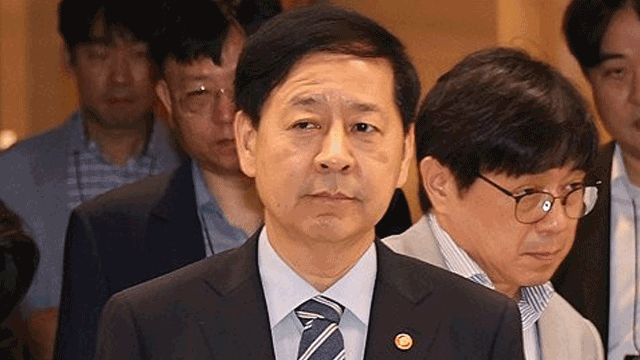
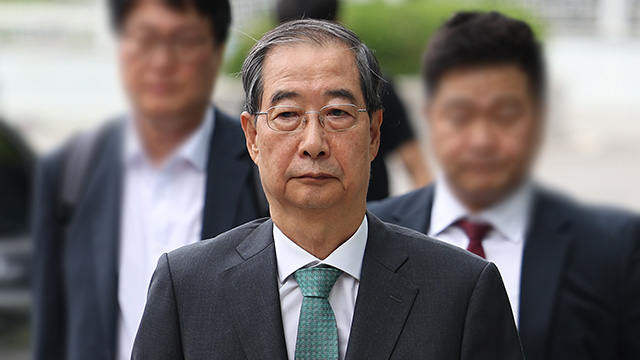
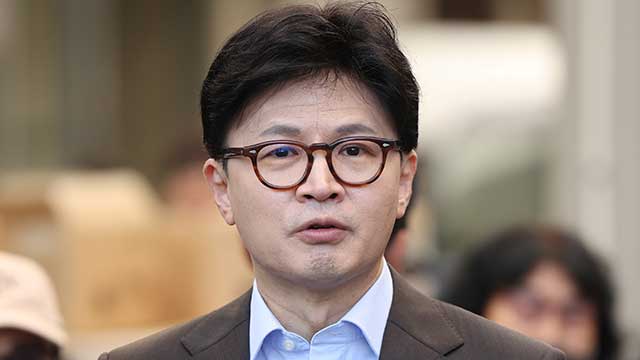
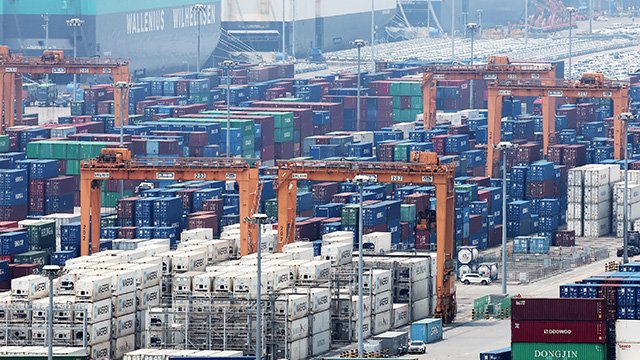

이 기사에 대한 의견을 남겨주세요.